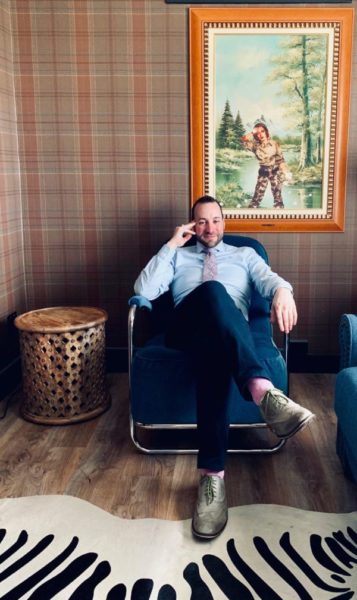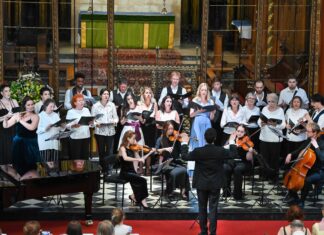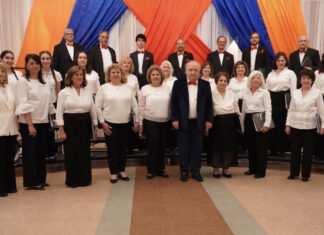BALTIMORE — Ben Newman is a man with a passion for music. As executive director of the Baltimore Chamber Orchestra, he is responsible for every element of the day-to-day operations of the company; in his words, “the marketing, the finances, contracting artists, paying the orchestra, paying for and attending board meetings, sending out fundraising letters, selling tickets, and so on.”
It sounds like a job for a business major with a passion for music; or even a music major who was always good with business. Newman is neither; he’s a classically trained violinist and singer who has a passion for the classical music experience as a whole. He’s translated that passion into a career in arts administration, spanning from opera companies to his current position with the BCO.
It all started with a unique childhood experience that blended the Armenian, Jewish and American cultures in Southeast Michigan.
Detroit Roots
“I grew up in a musical family,” said Newman. “We were all singers, and my sister and brother played piano. And at a young age I was introduced to classical music and really enjoyed the sound of the violin, and I asked my mom if I could play the violin at age 6.”
Newman came from an unlikely background. His father, Gene Newman, was a scion of one of Detroit’s storied Jewish families, and was a convert to Christianity as an adult. His mother, Robin (Soultanian) Newman, was the granddaughter of Armenian Genocide survivors whose Armenian father and non-Armenian mother were both deaf.









